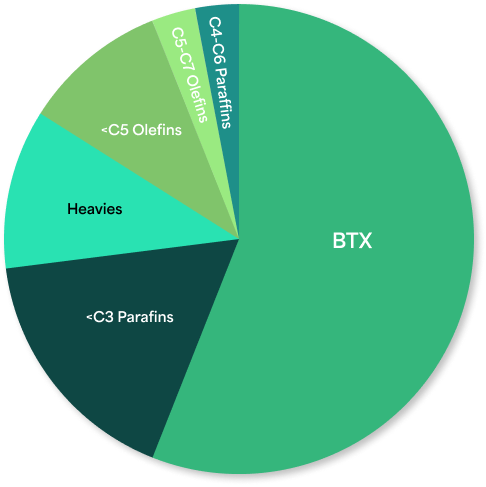Plas-TCat®
Efficient Chemical Recycling of Mixed Waste Plastic
Plas-TCat converts mixed plastic waste into valuable chemicals used today for producing virgin plastics in one efficient step

Plas-TCat converts mixed plastic waste into valuable chemicals used today for producing virgin plastics in one efficient step


Plas-TCat converts mixed plastics into valuable chemicals, processing all types, including PET, PC, PE, PP, and nylon, without intermediate steps.
This innovation tackles non-recyclable plastics, reducing landfill waste and ocean pollution.
Download whitepaper
Plas-TCat technology handles most waste plastics with minimal sorting and pre-treatment, making it ideal for municipal feedstock. It streamlines processing, reducing steps and minimizing costs for conversion into valuable chemicals.
Plas-TCat can be used to recycle a broad range of mixed plastic waste feedstock, for example:

Single use plastic

Flexible Packaging

Flexible Films

Composite Plastics

Plastic containing Nitrogen, Oxygen and other Heteroatoms

Other hard-to-recycle
materials
Anellotech’s technology offering provides major chemical producers with optionality, so they can meet their strategic needs.
Major olefin producers can leverage Plas-TCat to maximize olefins; while major BTX producers can leverage Plas-TCat to maximize BTX


